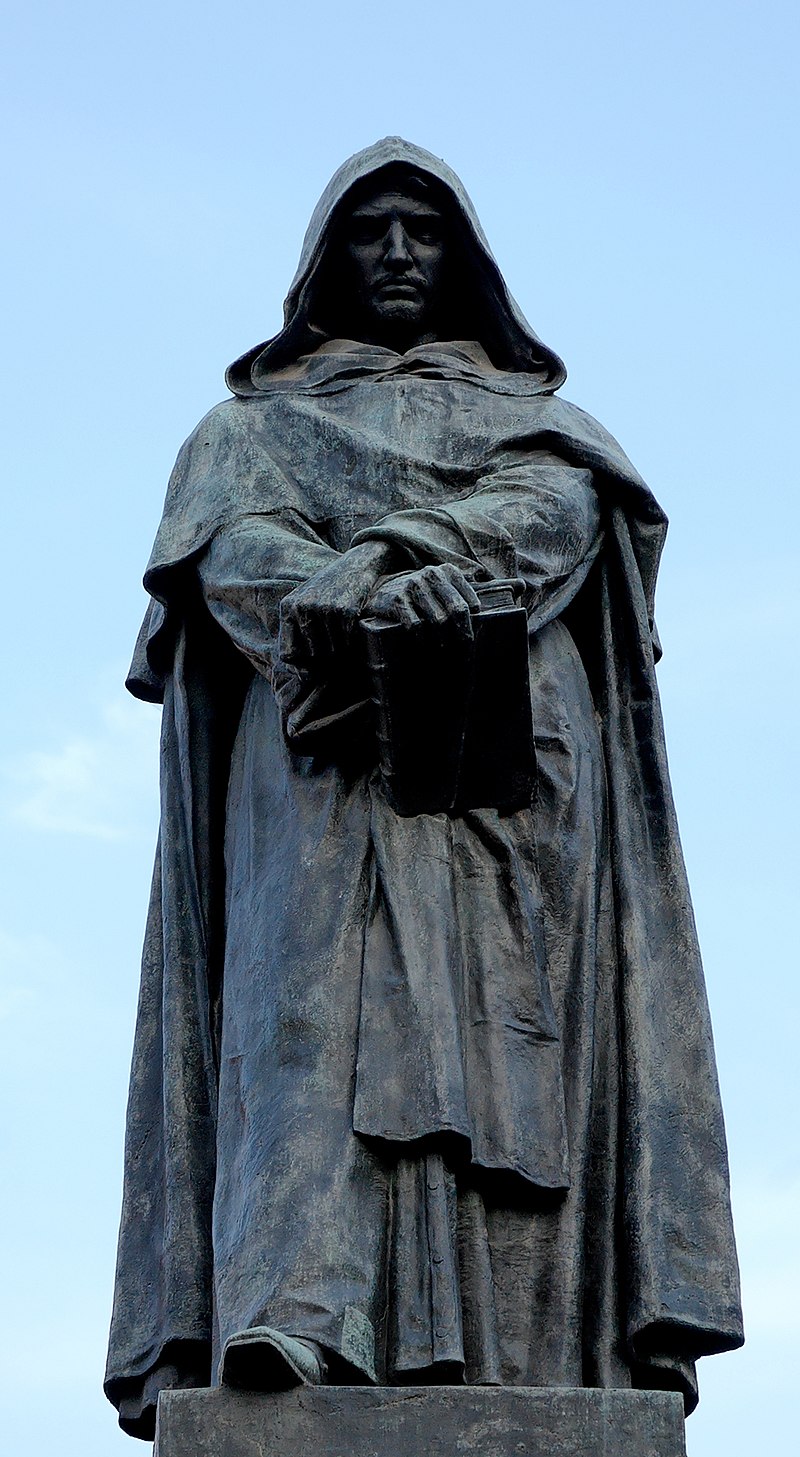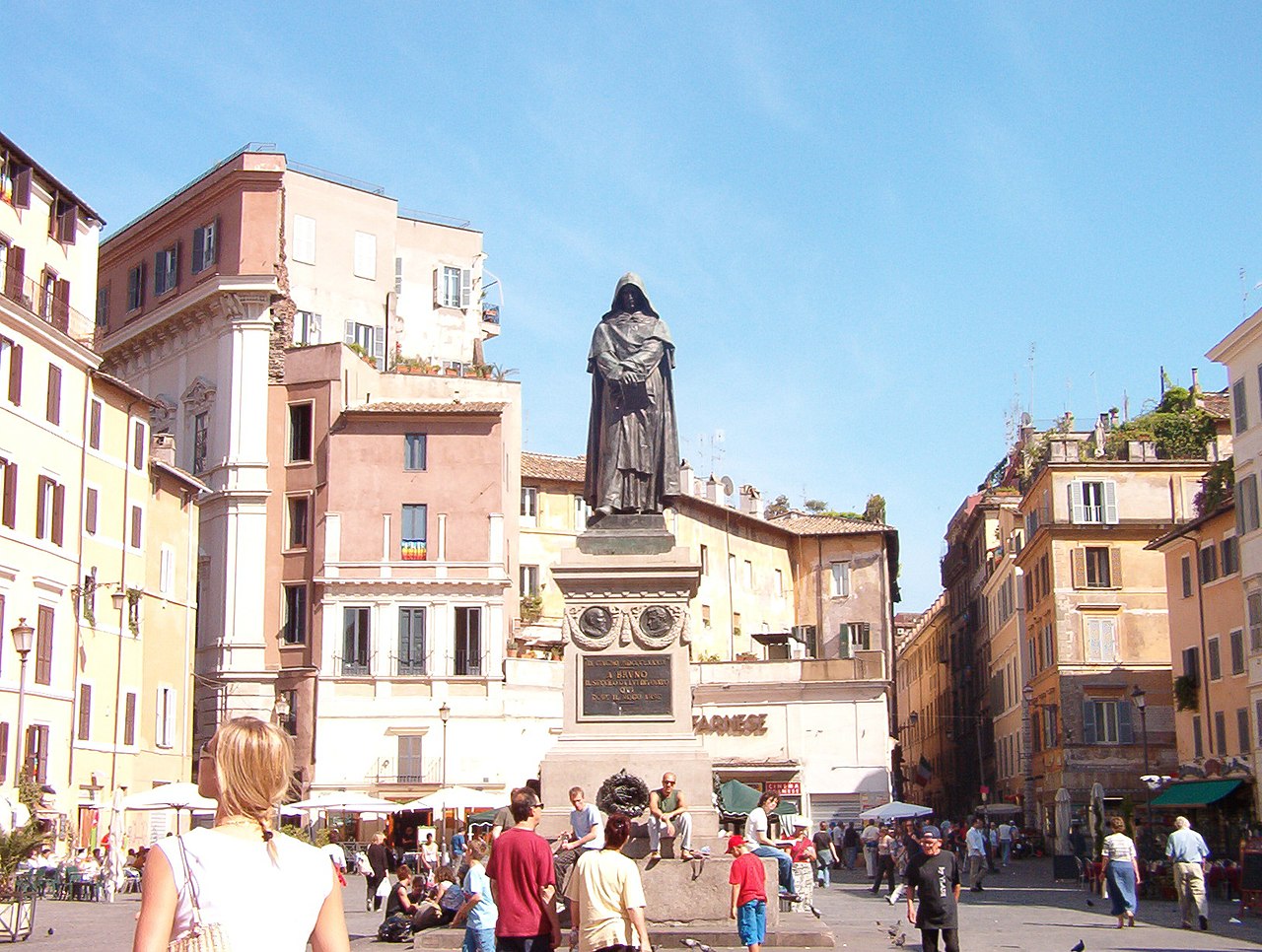Giordano Bruno (1548; Nola, Kingdom of Naples – 17 February 1600; Rome, Papal States), Italian philosopher, priest, astronomer and occultist. He is one of the most important of the philosophers who shaped Renaissance philosophy, and as a poet he is the closest to literature. He can also be called the thinker of naturalistic enthusiasm.
The Italian philosopher, who was among the first to break away from the Aristotelian view of a closed universe, defended Copernicus’ thesis. He said that the universe was infinite and evenly distributed and that there were many planets in the universe other than the earth. He was tried in the Inquisition court of the Roman Catholic Church in 1600 for his contrary views, declared a heretic and executed in Rome by burning alive with an iron mask over his face so that he could not speak.
He was born into a noble family in 1548 in Nola, Italy. At the age of fourteen he entered the Dominican order. When he became acquainted with the Copernican system, Bruno ceased to be a member of the order and consequently severed all ties with the Christian faith. Since he took part in a system against the church, he was accused of heresy. He fled to Rome and then to Northern Italy to escape the pressure of the Inquisition.
[su_posts posts_per_page=”1″ tax_term=”25457″ offset=”1″ order=”desc” orderby=”id” post_status=”any” ignore_sticky_posts=”yes”]

Since he was accused of heresy, he could not live anywhere permanently, he travelled constantly. He moved to Geneva, then continued his life in Southern France, Paris and London. In 1582, he obtained a chair at the Sorbonne University. He printed some of his works in London. Bruno, who went to Paris again for a short time after London, went to Germany this time and continued his efforts to publish his works. Bruno then travelled to Zurich, and when he was invited to Venice by an Italian aristocrat, he accepted the invitation. Here he met Galileo Galilei. But when he clashed with an aristocrat named Mocenigo, he was handed over to the Inquisition by him. He was told that he would be forgiven by the church if he renounced his ideas and accepted that his view of the infinite universe was a heresy. But despite all the tortures he suffered, he did not compromise his views and was sentenced to death.
Giordano Bruno said, “God uses good men on earth to impose His will; evil men on earth use God to impose their will.”…
The judge informed Bruno of the death sentence, to which he replied: “You are more afraid of my death than I am”. This decision of the Church was fulfilled by burning Bruno alive in the Campo de’ Fiori square in Rome in February 1600.
In addition to the infinity of the universe, Bruno also adopted the principle of the unity of the universe. Accordingly, he rejects the separation of heaven and earth based on medieval philosophy. Bruno recognises that God and the universe are not two different entities, but two infinite manifestations of the same reality. According to him, everything is the appearance of the divine force:
“I do not like to conceal the truth I see, nor am I afraid to express it openly. Everywhere I have participated in the battle between light and darkness, between science and ignorance, everywhere I have encountered difficulties, and everywhere I have been the target of the anger of the official academics, the fathers of ignorance, as well as of the thick-headed majority.”
Although he knew that it was very dangerous for him to express his thoughts, he always expressed his thoughts openly in his writings and speeches, as can be seen from the above sentence.

